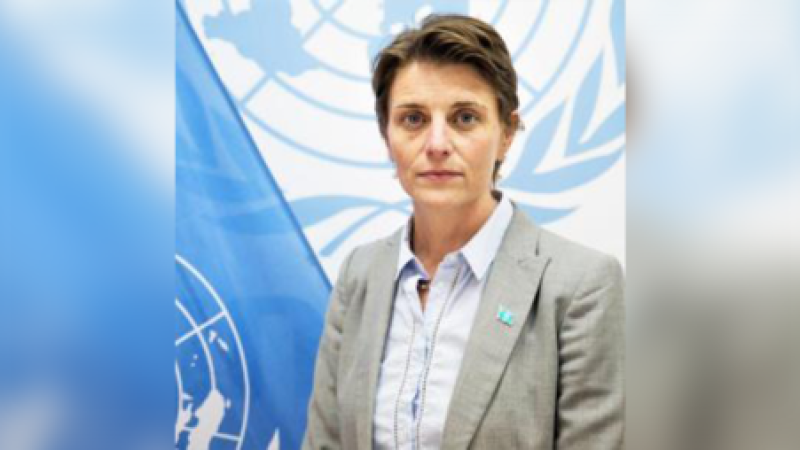- Intimidation or bloodshed cannot halt Bangladesh’s march to democracy |
- Khaleda Zia integral to an important chapter in BD history: Yunus |
- Enthusiasm marks Victory Day celebrations across Bangladesh |
- Dhaka-Delhi ties deep; to be shaped by trust, dignity, mutual respect |
- EU deploys election observation mission to Bangladesh |
UN Commits to Aid Bangladesh’s Reforms and Climate Resilience

UN Resident Coordinator in Bangladesh, Gwyn Lewis, has reaffirmed the UN’s commitment to supporting lasting reform, climate resilience, economic transformation, and gender equality, ensuring that no one is left behind as Bangladesh prepares for graduation from Least Developed Country (LDC) status.
Reflecting on the past year, Lewis acknowledged the challenges but praised the resilience and determination of the Bangladeshi people. “I am proud of the partnership between Bangladesh and the UN, grounded in shared values and aspirations,” she said.
The Government of Bangladesh and the United Nations Country Team (UNCT) recently convened for the biannual Joint Steering Committee (JSC) meeting to assess progress on the UN Sustainable Development Cooperation Framework (UNSDCF), launch the 2024 UN Country Results Report, and endorse strategic priorities for the coming year.
The meeting highlighted the UN’s adaptability during a year marked by political transition, major climate disasters, and reform momentum. The UN has played a critical role in governance reform, human rights advancement, and institutional strengthening.
In 2024, the UN delivered $215 million in development programmes, supporting initiatives such as the Smooth Transition Strategy for LDC graduation, creating over 4,000 jobs through private sector collaboration, assisting 116 businesses to improve turnover, and providing digital skills training to more than 11,000 young people.
UN-supported efforts enabled access to social protection services for 40 million people, with 580,000 children benefiting from protection programmes. A vaccination drive reached 5.6 million adolescent girls against the Human Papillomavirus (HPV), covering 93% of girls aged 10 to 14 in targeted divisions.
In response to climate disasters, the UN coordinated $44 million in assistance for flood and cyclone relief, providing humanitarian aid to 1.72 million affected people and raising climate risk awareness among 2 million Bangladeshis.
Through governance and gender initiatives, the UN helped Village Courts serve 66% of rural unions, reaching 61 million people. Support was also given to legislation such as the Sexual Harassment Prevention and Protection Bill, alongside advocacy for amendments to the Domestic Violence Act.
The meeting, co-chaired by Md Shahriar Kader Siddiky, Secretary of the Economic Relations Division (ERD), and Gwyn Lewis, brought together senior government and UN representatives. With the government extending the Eighth Five-Year Plan by one year, the JSC also endorsed a corresponding extension of the UNSDCF (2022–2026) to align with national development priorities.
A special session focused on youth engagement and the Declaration on Future Generations, exploring ways to amplify young voices and integrate intergenerational equity into policy, following the 2024 Summit of the Future.
Secretary Siddiky expressed appreciation for the UN partnership and optimism about the extended Cooperation Framework as a foundation for deeper collaboration during this transition. He highlighted the need for continued support in climate financing, youth employment, social enterprises, water resource management, local governance, and responsive aid ahead of reforms and elections.
The JSC concluded with agreement on next steps, including the launch of a final evaluation of the UNSDCF in late 2025 and renewed efforts to accelerate progress on Sustainable Development Goals (SDGs) and LDC graduation targets.
The Cooperation Framework outlines UN support to Bangladesh across five strategic priorities: Inclusive and Sustainable Economic Development; Equitable Human Development and Wellbeing; Sustainable, Healthy, and Resilient Environment; Transformative, Participatory, and Inclusive Governance; and Gender Equality and Eliminating Gender-Based Violence.
The next JSC meeting is planned for November or December 2025.

